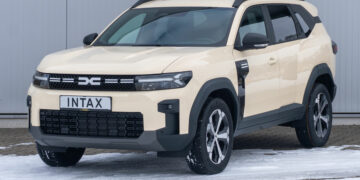Karhoo, the new cab comparison and booking app, has partnered with Autocab, the world’s largest taxi dispatch system, to integrate and align their technological solutions, which will allow all of Autocab’s fleets to seamlessly join the Karhoo platforms.
Autocab operates in 26 countries and 320 cities, from Australia to Spain to the UK, has 60 per cent market share and more than 200 full time staff in five offices around the world with 140,000 cars on its platform.
Daniel Ishag, founder and CEO of Karhoo, which has successfully launched in London and is about to launch in New York and Singapore, said: “Karhoo and Autocab is a natural partnership that benefits fleet operators, drivers and consumers around the world. It gives drivers the chance of more work, gives consumers more choice and helps accelerate our global roll-out. Incumbents are 80% of the ground transportation markets, largely outweighing the new-economy players.”
This partnership is another step in our strategy to be able to offer best in class service for consumers globally and provide a platform for fleets and drivers to acquire business. It allows us to continue to level the playing field and provide choice to drivers, fleets and consumers.
Safa Alkateb, CEO of Autocab, said: “This partnership is significant for both Autocab and Karhoo as we believe that by working closely we can strengthen fleets – giving them a chance to compete, which is what they want – while delivering an unrivalled end-to-end passenger experience. A large number of our fleets are choosing to work with Karhoo because they offer quality and reliability on every journey and that is key. As a market place, Karhoo has distinguished itself with both fleets and consumers in a very short time.”
Karhoo’s vendor-neutral platform that works with most dispatch systems, only accepts accredited fleets and licensed drivers, allows passengers to compare cabs available to book in their area by price, proximity and vehicle style. The app then lets passengers book days, weeks or months in advance or choose immediate pickup with their preferred cab company, giving both local and national operators access to thousands more customers. Passengers can also make multiple bookings and, with transparent pricing and no surge, Karhoo passengers know the price they book will be the price they pay, no matter what time of day or night they travel.
In just twelve months, Karhoo, which has offices in London, New York, Los Angeles, Singapore and Mumbai, has already secured a global network of 400,000 local taxis, minicabs and executive cars around the world from accredited operators that only employ professional, licensed drivers.
Some of the biggest household names have signed up to Karhoo, including Addison Lee and ComCab in the UK, Verifone, CTG, Carmel and Yellow and Green cars in New York and Comfort DelGro and Prime in Singapore to name a few.
By the end of the year, Karhoo will have a million licensed cabs in 30 cities across the globe, as established operators flock to sign up to the app that is changing the landscape of the on-demand transport industry forever. Within a year, customers will be able to book a cab through Karhoo in 100 cities across the world.
Daniel added: “In today’s world, consumers are accustomed to on-demand comparison platforms for their travels, financial services, restaurants. But let’s not forget the billions of dollars spent by the new-economy companies over the last 15 years on educating consumers for this revolution. Ground transportation was lagging behind, until now. Karhoo is the game-changer, bringing consumers the smartest way to choose and book a cab ride anywhere in the world.”
Karhoo is the first global player in an otherwise very fragmented market. Not only are we leveling the playing field for all established operators, we are bringing countless companies online and into the e-hail revolution, allowing them to compete and reclaim market share.” Working directly with established cab operators and their fleets, Karhoo can expand more quickly and with less capital requirement than the driver-by-driver model used by other app-based services







